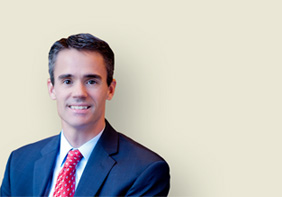What Is The “Yield Curve”?
The yield curve is flattening (or growing steeper)! … Yield curve spreads are widening (or narrowing)! … The yield curve has inverted (or normalized)!
Headline-grabbing yield curve commentary somehow sounds important, doesn’t it? But what is a “yield curve” to begin with, and what does it have to do with you and your investments?


Posted by:
Waypoint Wealth Management
What’s THE Most Important Thing You Can Do To Prepare For Retirement?
I was thinking about this question while reading an article a client sent to me. You can find the write-up here, and it’s a helpful “countdown to retirement” with many tips to consider as you approach retirement. As I looked through the list and thought about covering these issues with our own clients over the years, the question came to mind: what is the most important financial planning step you can take to feel great about your retirement plan?

It’s really a tough question since there are a lot of important issues to consider when “taking the leap” away from a career that you’ve had for so many years. Topics such as health insurance, do you have enough saved, are you invested properly, Social Security timing and others are obviously important to explore. There’s also the softer part of the equation: how will you spend and enjoy your time? Should you still work? How will you miss the social aspect of working and contributing?
But if I were forced to answer, what would I say is the most important question? That’s when I realized it’s the one that I have been recommending most lately when helping someone plan for retirement. It’s this simple question: how much do you need to live on (and how sure are you of that?)? > SEE MORE

Posted by:
Pete Dixon, CFP®
Partner and Advisor
Trade Troubles?
You may have heard or read the news of an escalating trade war between the United States and China, which has dominated headlines recently as both countries formally imposed substantial tariffs on one another. In response to the Trump administration’s 25 percent tariff on $34 billion worth of Chinese goods (largely industrial and technology products), the Chinese government levied tariffs of equal size on certain U.S. goods (largely agricultural products). The U.S. government is expected to launch a second round of tariffs on China, worth another $16 billion, in the next few weeks. Then on July 11, the White House announced it is preparing yet another wave of tariffs targeting China to go into effect sometime after August 30.

This most recent trade conflict follows tariffs of up to 25 percent that the Trump administration imposed in June on steel and aluminum imports from Canada, Mexico and the European Union, who then countered with levies on U.S. exports ranging from maple syrup to Harley-Davidson motorcycles.
How do these decisions affect you, and is there anything we should be doing about it when it comes to your investments? > SEE MORE

Posted by:
Waypoint Wealth Management
Would You Pay For Your Doctor’s Trip To The Bahamas?
What if you knew that your doctor was more highly trained to sell you a specific drug that paid him much more money than any other suggestions he could make for you, even if it wasn’t in your best interest? On top of that, what if you knew that this doctor had sales targets where his income would increase drastically for selling enough of this medicine each month? He could provide you with advice and receive his standard fee, or he could suggest that you take this drug and he would receive $70,000. In addition, if he sold enough of this in a certain time period, the drug company would send him and his family to an all-expense paid, posh trip to the Bahamas. Does he maintain his ongoing education as a doctor? Sure, he does—enough to maintain his license. But more of his training these days is put toward attracting ‘customers’ into his office to convince them to buy this drug. I mean, why wouldn’t he? The opportunity is to make millions more per year, so he’d prefer to hone his skills with talking you into buying more of this drug, and getting to know your friends and family so he can sell it to them too.

Here’s a question for you: would you work with this doctor?
You might say “of course not!” And I certainly wouldn’t either. But what if I told you that this is exactly what is going on in the investment industry? > SEE MORE

Posted by:
Pete Dixon, CFP®
Partner and Advisor
Rate Fears And Your Fixed Income Strategy
What a difference a decade makes. It’s hard to believe it’s been approximately ten years since the “Great Recession” began. By year-end 2008, the U.S. Federal Reserve (the Fed) had lowered the target federal funds rate to near-zero and went on an aggressive easing campaign, hoping to resuscitate the economy with a booster shot of lending, borrowing and spending dollars.
Some would say the economic recovery that followed was a result of these Fed initiatives. More likely, there were a number of contributing factors including technology and innovation. Either way, the Fed has begun to reverse course, restoring its policies and targets closer to historical “norms” through quantitative tightening and gradually rising rates.

Here’s the $64,000 question: as an investor, what can or should you do to prepare if rates do continue to rise? For that matter, what can or should you do if they don’t? As usual, our advice may not be as action-packed as you might crave, but there are a number of solid, evidence-based strategies that stand the test of time. > SEE MORE

Posted by:










